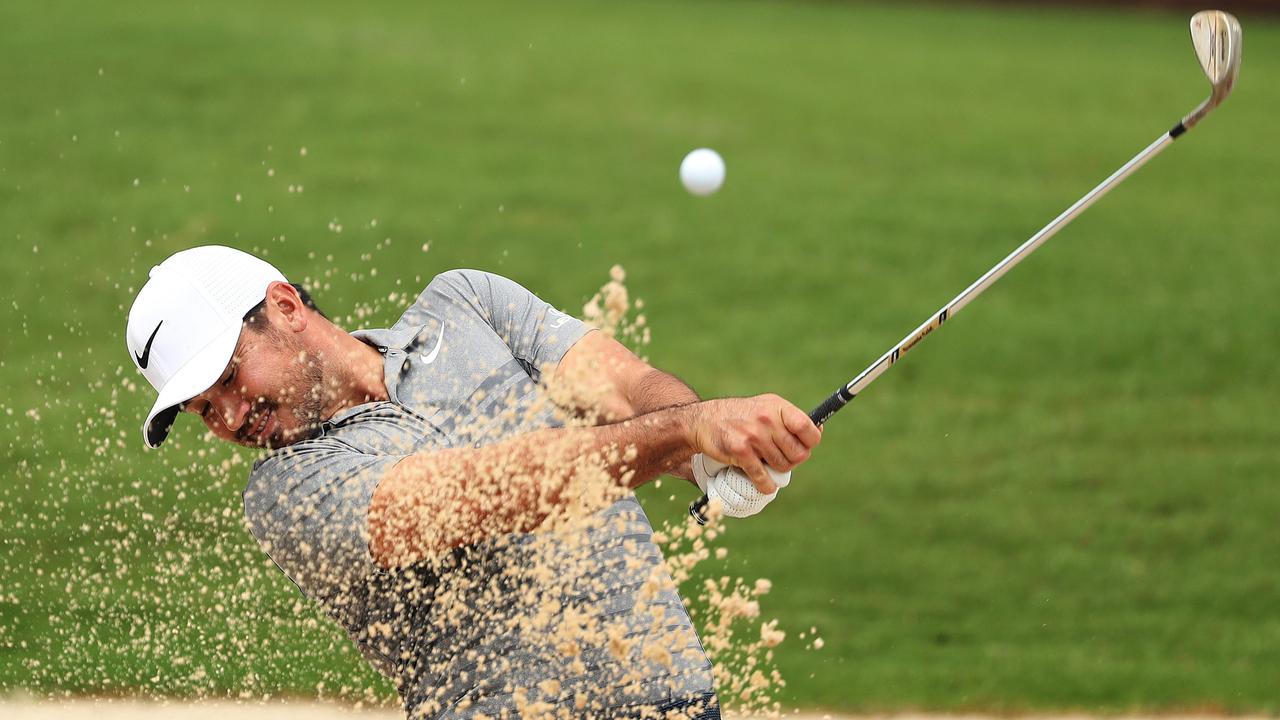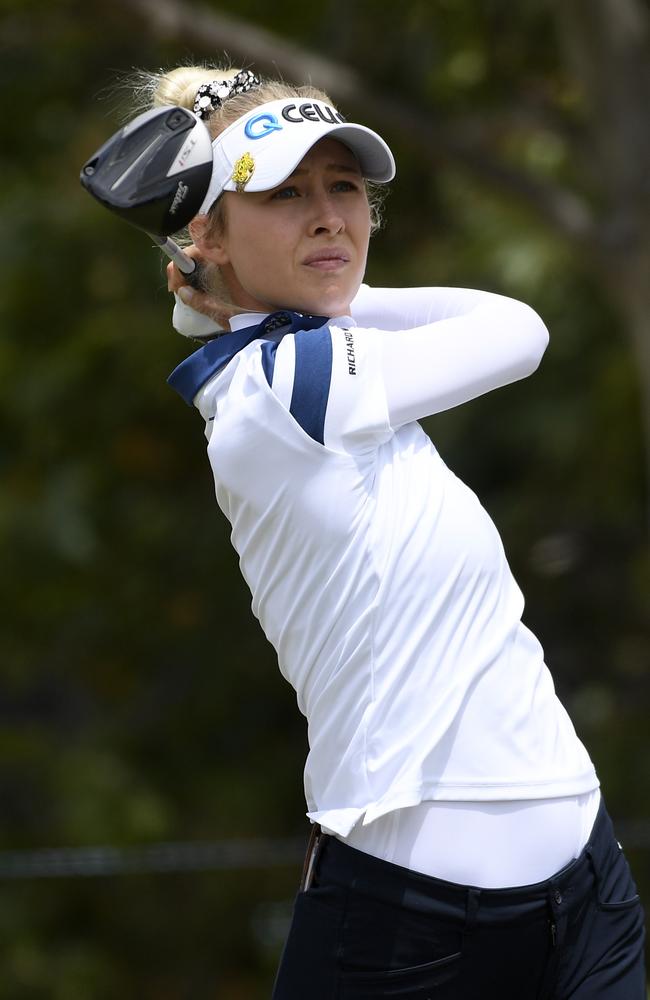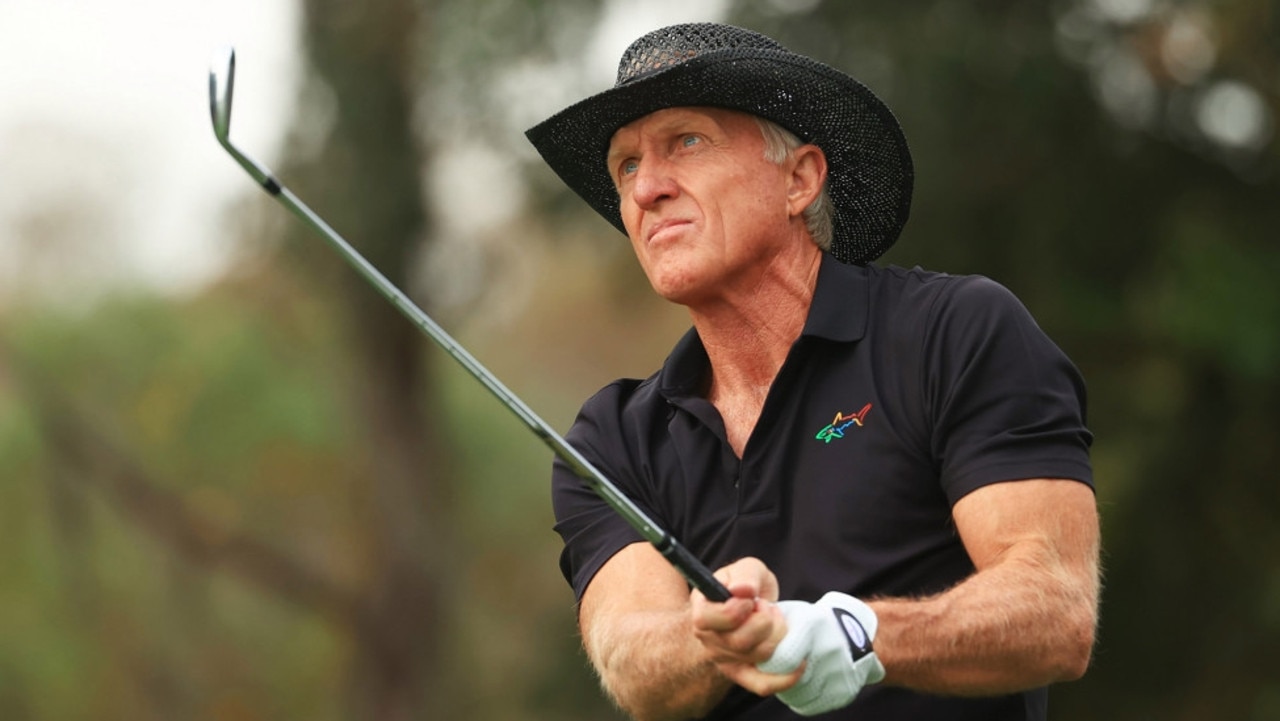Macquarie Uni Business School analyses how the mind game of golf can help avoid a choke
An economic study on the game of golf suggests how players can avoid choking on the green and off it at work.
Golf
Don't miss out on the headlines from Golf. Followed categories will be added to My News.
Corporate Australia like to do deals on the golf course but what if the game itself could give insight on how best to do business deals.
Two lecturers of economics at Macquarie University Business School have looked at the play of more than 1300 professional golf players, men and women, over 120 tournaments in two US seasons to come up with theories on why some choke and others don’t at critical junctures in their game.
And while untested in the non-sport world, their empirical findings on human behaviour, psychology and emotions in the game could lead to better choices we make elsewhere.

Conclusions from their hole-by-hole analyses found a player’s good or bad game after a bad hole had more to do with the mind game over any physical strategy or ability on how to approach the next green
Contrary to popular sporting belief, there was no evidence of the “hot hand phenomena”, largely referenced in golf, baseball and basketball to describe a player’s ability to produce a sequence of superior performances above their norm, with emotional control a more critical driving factor.

They did find “significant” statistical evidence however of a “cold-hand” effect, where a bad hole or play increased the chance of another straight after.
Those who had a low sensitivity to prior performance was related to better scoring as opposed to streaky play.
Performance training, they concluded, needed psychological skills including specific strategies for controlling emotional responses to success and failure in the short run such as within the next five to 10 minutes of a negative action.
“What we found could be the key in psychological training, the ability to practice that almost meditative state ‘I’m a professional golfer I have done this 1000 times, 10,000 times on the practice course’, the resetting is important,” Dr Paul Crosby, a lecturer of economics at Macquarie University, said.


Golf is not usually the purview of economists, but Dr Crosby and fellow Macquarie University lecturer Dr Andrew Evans said the game provided one of the best data sets to explore human behaviour with par the expectation but a bogey or birdie flagging a good or bad decision.
“Micro economics is individual decision making and the choices we make and if you think of economics as a study of choices, sports then becomes much more relevant in terms of an arena in which to evaluate choices,” Dr Crosby said.
“It’s rare in human behaviour that we have such quantifiable metrics in terms of what goes well and what doesn’t and I think as economists we struggle to market ourselves doing interesting work – everyone knows the great work done on the macro level, unemployment, fiscal stuff – but it can also give these nice insights into sport, culture, entertainment and all that.”

Dr Evans said players at this level practised so much they can make the shot but it’s the mind game, the mental state that sees negative performance follow negative performance for some.
From their study he said there would be other sporting and non-sporting situations where a similar phenomenon occurs.
“It’s about not changing your approach to the next task when something goes wrong,” Dr Evans said. “Remember what you are good at and don’t let outside thoughts impact what you know you can do. Reset and do exactly what you trained for.”
Originally published as Macquarie Uni Business School analyses how the mind game of golf can help avoid a choke






